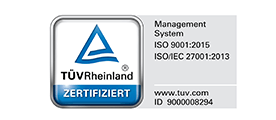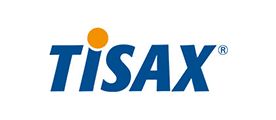Process automation
Automation with the help of AI and robotics
- the efficiency driver par excellence
In an era characterized by digital innovations and constantly changing business requirements, process automation plays a crucial role. Process automation is the transformation of manual or semi-automated business processes into automated processes with the help of advanced technologies.
Process automation aims to automate repeatable, manual tasks and business processes using technologies such as artificial intelligence (AI), machine learning, robotics and software solutions. This automation and digitalization extends across all areas of a company, from administrative processes to complex decision-making processes. At Ventum Consulting, however, we don’t see process automation as simply automating workflows, but as a strategic initiative to transform your business towards efficiency, productivity and innovation.
The aim of process automation is to optimize resources, reduce costs, establish efficient workflows and increase your company’s responsiveness to market changes. It allows your employees to focus on value-adding activities while repetitive steps are taken over by technology. It also creates the basis for data-driven decisions by providing a comprehensive insight into operational performance.
Process automation can be used in almost all industries and business areas, whether in the financial sector, healthcare, retail or the manufacturing industry. The constant development of technologies is constantly creating new opportunities for the automation, optimization and digitalization of business processes.
Process automation with Ventum

End-to-end automation
as target
At Ventum Consulting, we take a holistic approach to process automation. Our knowledge of state-of-the-art technologies enables us to identify the right solution for you. We drive the API-ization of your IT landscape, build a mappable business architecture and use the business capability approach. Our understanding of automation does not end with rule-based business processes - we want to create end-to-end automation with the constant goal of complete dark processing using artificial intelligence. This not only reduces the costs of your business processes. You also relieve your employees of repetitive tasks and develop them more and more into knowledge workers.

Positive effects that
remain noticeable
We are not a software distributor and do not work in resource pools. We put together a cross-functional team of experienced consultants with different professional backgrounds for you. We support you with comprehensive knowledge at infrastructure level, specialist industry knowledge and expertise in change management and organizational development. After all, our aim is not just to ensure that your automation works as quickly as possible - we want the positive effects to be felt in your company in the long term. Our consulting always ensures that your organization supports the changes.
Your path to effective process automation
The path to effective process automation begins with a clear understanding of your own company processes and an awareness of how automation can optimize them.
Analysis and identification
The first step on the path to process automation is a thorough analysis of existing company processes. Identify manual or repetitive activities and inefficient process steps that are suitable for automation.
Strategy development
After identifying potential automation opportunities, it is important to develop a clear strategy. The next step is to determine which goals you want to achieve with automation and digitalization and which technologies or tools are best suited for this.
Choosing the right solutions
Select suitable technologies or software solutions that meet your automation goals. Take into account the requirements of your company and the integration of new systems into your existing IT infrastructure.
Implementation and test phase
The implementation of automation solutions requires careful planning and execution. Carry out tests after the introduction of new applications to ensure that the automation functions smoothly and delivers the desired results.
Training and integration
Ensure that your employees understand the new automated workflows and can use them effectively. Comprehensive training and the integration of automation solutions into workflows are crucial for success.
Monitoring and adaptation
Continuous monitoring of automated processes is important in order to identify potential problems at an early stage and make adjustments. Regular evaluation ensures that automation continues to deliver the desired benefits.
Conclusion: The path to effective process automation requires a holistic approach, starting with the analysis of existing processes and applications through to the implementation and introduction of new applications and the continuous monitoring and adaptation of processes. Companies that follow this path benefit from increased efficiency, productivity and competitiveness. We are happy to assist you as consultants in the automation and digitalization of your processes.
Your contact person

– Matthias Fink, Ventum Consulting
Advantages, methods and possible applications of successful process automation

The automation of your processes offers you these advantages
Increased efficiency: The automation of processes enables a drastic increase in efficiency in your company. By eliminating manual or repetitive activities, workflows are accelerated. This leads to a reduction in throughput times and faster provision of products or services.
Saving resources: Automation helps to make optimum use of resources by reducing human working hours that would otherwise be spent on repetitive tasks. This leads to cost and time savings as well as better utilization of personnel for more demanding steps in the work process.
Combating the shortage of skilled workers: By automating routine tasks, skilled workers can use their skills for more complex and value-adding activities. This helps to motivate and retain your employees, which is particularly beneficial in industries with a shortage of skilled workers.
Quality improvement and error minimization: Automation reduces human error and ensures consistent, precise execution of tasks. This leads to higher product quality, as critical work processes are standardized and sources of error are minimized.
Increased customer satisfaction: Automation increases customer satisfaction through faster response times, consistent service quality and the ability to process customer inquiries or orders efficiently. This contributes to customer retention and loyalty.
Promoting innovation: Automation frees your employees from repetitive tasks and allows them to focus on more creative and innovative activities. This promotes the development of new ideas and improves your company’s ability to innovate.
Improve compliance and minimize risk: By automating processes, you can ensure that compliance standards are adhered to. This minimizes the risk of errors or violations of legal regulations. Automation also enables better traceability and documentation of processes.
Success with these process automation methods
- Object Centric Process Mining (OCPM): Object Centric Process Mining is a method that aims to analyze company data and processes in order to gain insights into the actual execution of processes. By using event logs and data analysis, OCPM enables the visualization and optimization of processes, the identification of bottlenecks and the improvement of process efficiency and quality.
- Robotic Process Automation (RPA): RPA is a technology in which software robots automate repetitive business processes by mimicking human-like interactions with digital systems. Using rule-based scripts, RPA automates tasks in areas such as data processing, accounting and customer service. The technology integrates seamlessly into existing systems, improving efficiency and minimizing errors.
- Business Object Automation: Business Object Automation focuses on the automation of business objects and entities in your company. This includes the automation of data flows, decision-making processes and workflows to enable seamless interaction between different systems and departments.
- Artificial intelligence (AI) and machine learning (ML): AI and ML are technologies that enable systems to learn from data, recognize patterns and make decisions independently. In the context of process automation, AI and ML can be used to develop intelligent systems that are able to analyze, predict and automate complex tasks. This includes the prediction of trends, the optimization of processes and the personalized adaptation of offers to customer needs.
- Supplementary methods and tools: In addition to the methods mentioned above, there are a variety of tools and technologies that can contribute to process automation. These include workflow management systems, business process management (BPM) software, low-code or no-code platforms and much more. These tools offer various options for modeling, automating and managing processes depending on the requirements and complexity of your company.


Process Mining with Celonis
To take process automation to a new level, Ventum Consulting relies on advanced process mining technologies, in particular the solutions from Celonis. Celonis enables the detailed analysis and visualization of your business processes in real time. By using machine learning and AI algorithms, Celonis identifies potential for increasing efficiency, bottlenecks and optimization opportunities.
With Celonis, you gain insight into the current status of your processes and can initiate targeted improvement measures. The transparency provided by Celonis not only helps you to identify automation opportunities in existing workflows, but also enables you to continuously monitor and adapt automated processes. The seamless integration of Celonis into our process automation solutions gives you the opportunity not only to automate individual process steps, but also to optimize the entire process flow.
Celonis hosted the second global Ecosystem Hackathon in October 2023, in which a team from Ventum Consulting took part alongside many other Celonis partners. The Ventum team presented a newly developed Celonis app for CBAM from scratch and won the world champion title with this innovative solution.
What our customers say
– Patrick Bernardi, Manager Digital Transformation, DKB Service
How to implement process automation in your company
Process automation can be used in various areas of a company to achieve more efficient and accurate processes. We can work together to determine which tasks these are in your company’s specific case through a thorough analysis of the existing processes. Below you will find some examples of application areas:
Human Resources (HR): In HR, automation can be used in application processes by sending automated emails for incoming applications or generating automated confirmations for submitted documents. Automated checklists and induction materials can also be sent to new employees during onboarding processes. Automated personnel planning can create duty rosters based on defined criteria, and training can be supported by learning platforms and automatically generated learning content.
Data collection and customer inquiries: Automation can be used in data collection to collect, aggregate and analyze data from various sources. An automated ticket system can be set up for customer inquiries, which prioritizes incoming inquiries and forwards them to the relevant departments or employees. Chatbots or AI-supported systems can answer frequently asked questions automatically and process simple customer inquiries.
Accounting and ordering: In accounting, automated systems can track transactions, record receipts and generate reports. Automation can also be used in order management to automatically trigger orders, monitor stock levels and generate shipping notifications.
Other possible applications: Other areas in which process automation can be useful include the management of marketing campaigns, sales processes, warehouse management and the management of customer databases. Any area that involves repetitive, rule-based or time-consuming tasks offers potential for the use of automation solutions.
Our partners
Frequently asked questions about process automation
Process automation uses software, tools and technologies such as artificial intelligence (AI), machine learning, robotic process automation (RPA) and others to automate manual, repeatable or rule-based business processes. This is done by identifying, modeling and executing processes that were previously performed by humans. The aim is to increase efficiency, minimize errors and increase the speed of work processes.
There are different types of process automation, including robotic process automation (RPA), business process automation (BPA), cognitive automation, data-driven automation, as well as process mining and business intelligence-based automation. Each type aims to automate specific processes or aspects of business processes, using different technologies and approaches.
Automation processes offer numerous benefits, including increased efficiency, resource savings by reducing manual labor hours, improved accuracy and consistency of workflows, increased speed of response to requests or processes, and relieving employees of repetitive tasks so they can focus on more challenging activities.
RPA is a technology in which software robots automate repetitive business processes by mimicking human-like interactions with digital systems. With the help of rule-based scripts, RPA automates tasks in areas such as data processing, accounting and customer service. The technology integrates seamlessly into existing systems, improves efficiency and minimizes errors.
Examples of process automation include automated invoice processing, automated email notifications, warehouse management, automated customer inquiries using chatbots, automated data collection and analysis as well as automated HR processes such as onboarding or payroll.
Our team of experts is ready to discuss your individual requirements with you in a no-obligation initial meeting. Let’s find out together how we can make your processes more efficient and support your business goals. We are convinced that with our knowledge, experience and passionate work, we can give your company a decisive competitive advantage with successful process automation.
Arrange a non-binding initial consultation now
- Strategic, professional & technical support in digital change
- Pragmatic, creative & excellent to the goal
- Methodical, professional & technological expertise



TISAX and ISO certification for the Munich office only